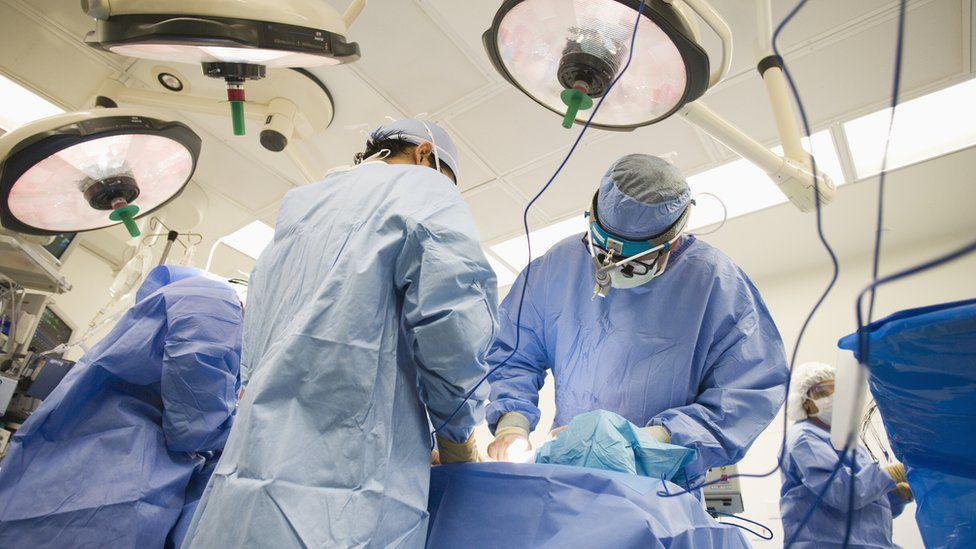Health review 2023: What could have been for healthcare in Northern Ireland?
- Published
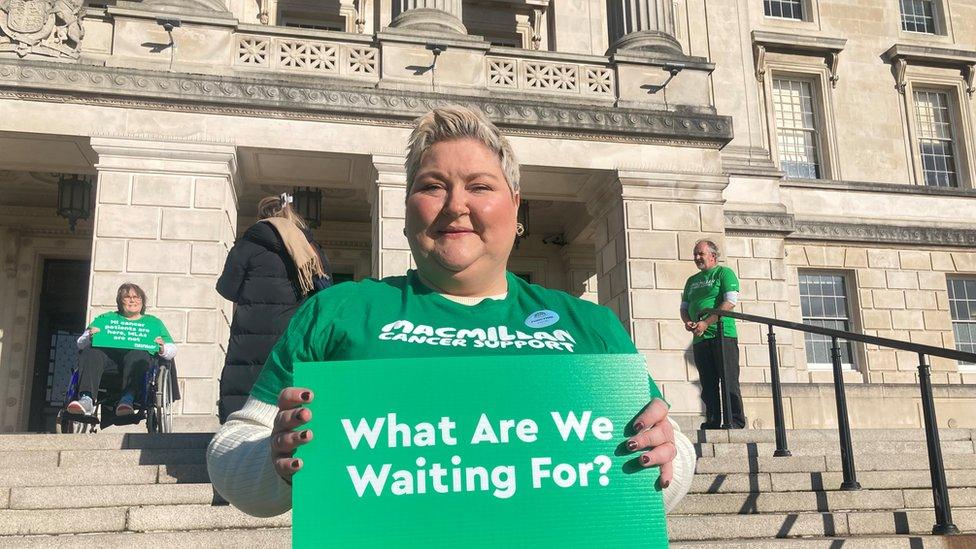
People, like Colleen McCallion who has breast cancer, have protested outside Stormont
Bereft of politicians, patients and charities regularly occupied Stormont to protest about the continuing stalemate and its impact on the health service in 2023.
Hospital waiting lists, the state of general practice and social care stories again regularly made headlines.
It was a year like others except numbers, morale and workforce all took a nosedive.
But it was hard not to imagine what might have been.
If the Bengoa health review had been able to unfold, by 2023 we would have had eight years of implementing it.
But that did not happen and, in September, Macmillan Cancer Support described what was happening in the healthcare system as "absolutely disgraceful" and said patients' lives were being "turned upside down with stress and worry".
Patients voiced their frustration too.
On the steps of Stormont, terminally ill Dundonald woman Christine Campbell said a delay in her cancer diagnosis was down to faults within the healthcare system.
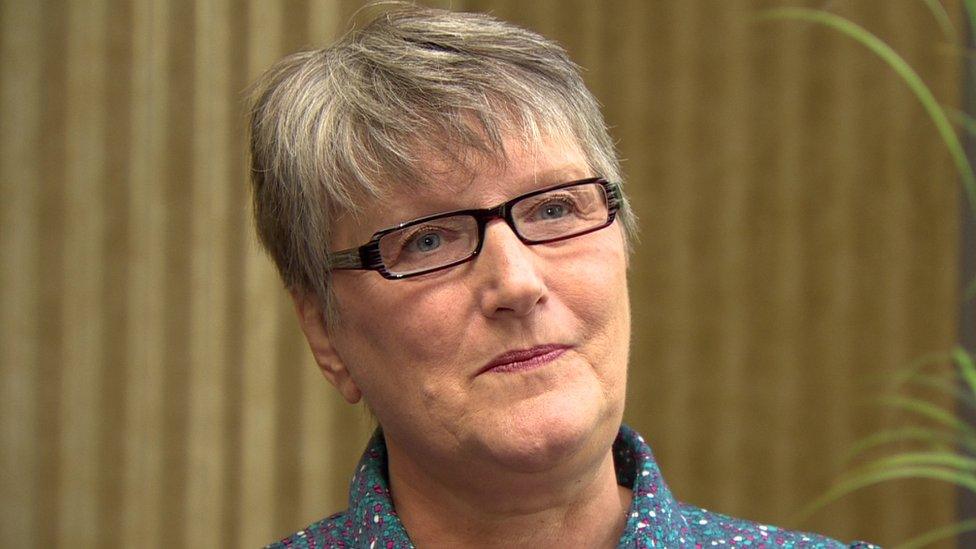
Christine Campbell says "the fault lies in the system"
The 57 year old had waited five to six months for a gynaecology appointment after experiencing symptoms.
"I have stage four ovarian cancer - I've been given a diagnosis of less than 12 months," she said.
"I want to ask our politicians: where are you? Why are you not in this building behind us?
"We need Stormont up and running, with a proper health minister for the NHS."
Cancer strategy
The implementation of Northern Ireland's 10-year cancer strategy was frequently mentioned as, without it, clinicians said patients and the system would continue to deteriorate.
Without an executive, the strategy cannot be implemented in full.
There was sustained focus on bowel, prostate and cervical screening in 2023, with many statements made and frustrations vented.
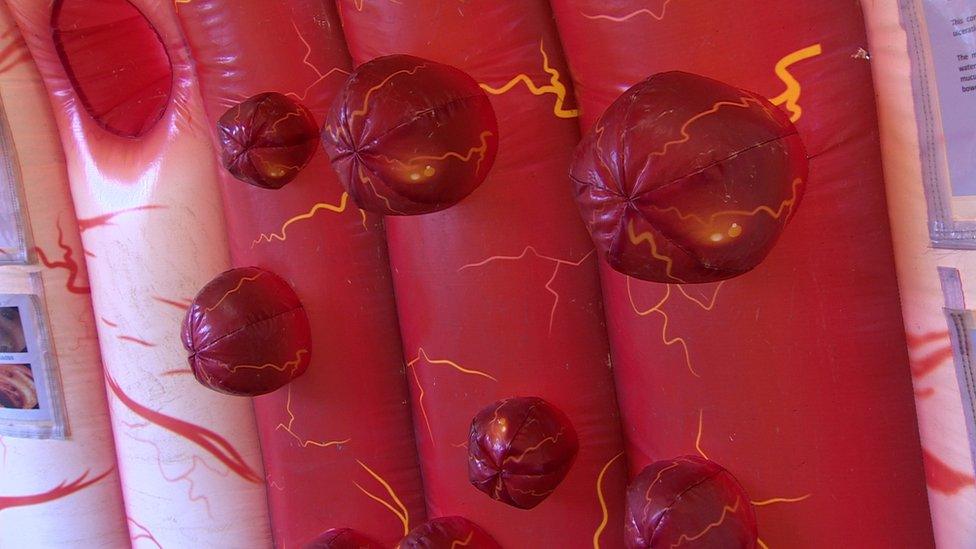
People were able to walk through an inflatable bowel showing cancerous and pre-cancerous polyps at a Stormont event
Prof Mark Lawler showed me around a giant inflatable bowel that was pitched at the steps of Stormont to help visualise the various stages of bowel cancer and encourage the public to be more aware of symptoms.
While patience for the health and social care system has been waning, patient waiting lists have been growing.
There was a call from Bowel Cancer UK for Northern Ireland's screening services to be on a par with the rest of the UK and the Republic of Ireland.
We learned that screening ages vary across the UK. In Northern Ireland, it's 60-74; England 56-74; Scotland 50-74 and Wales 51-74.
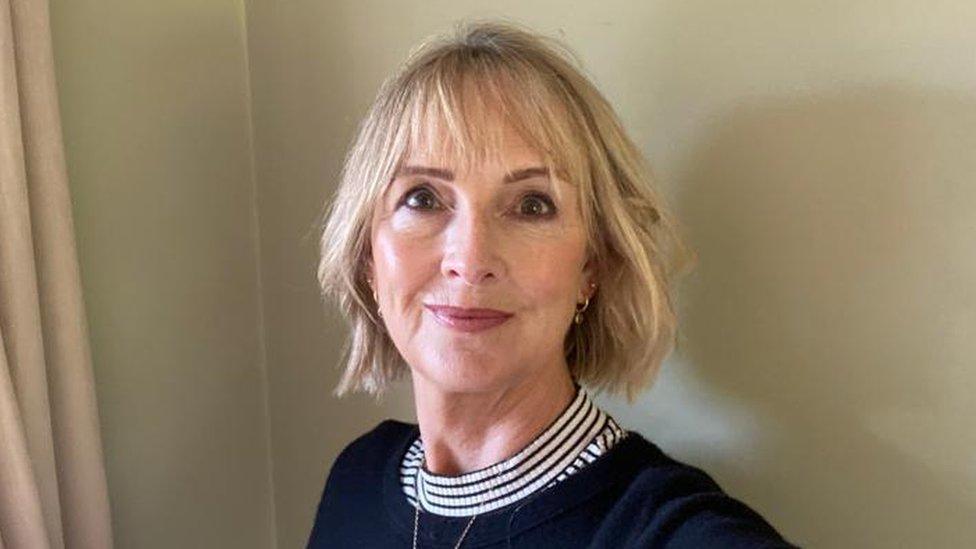
Pamela Redmond was diagnosed with bowel cancer in an emergency department
Pamela Redmond told us she was diagnosed with stage three bowel cancer in an emergency department at the age of 56.
Earlier screening and in a controlled environment would have caught it much sooner, she said.
Your stories matter
It has been another year where the public has influenced BBC News NI stories.
Ian Murray, 89, is living with dementia. His wife, Miriam, is one of about 220,000 people in Northern Ireland providing unpaid care for a sick or disabled family member or friend.
That represents one in eight people, according to Carers NI.
The charity said people were not being offered help until they are in crisis.
Mrs Murray said she has had to choose between caring for her husband or her sister.
Miriam Murray says caring means she has neglected her own health
Mrs Murray said she had to "let one go" to look after the other.
The appointment of a dementia carers co-ordinator to concentrate entirely on carers by the charity Praxis was "progressive", she said.
This year saw hospital waiting lists heading ever closer towards the half million mark.
Half a million people waiting to see a consultant for the first time - an incredible statistic highlighting a badly broken system.
John Clarke used his savings to allow him to access a CT scan, privately.
He said if he had not been able to do that his illness and prognosis would have been worse.
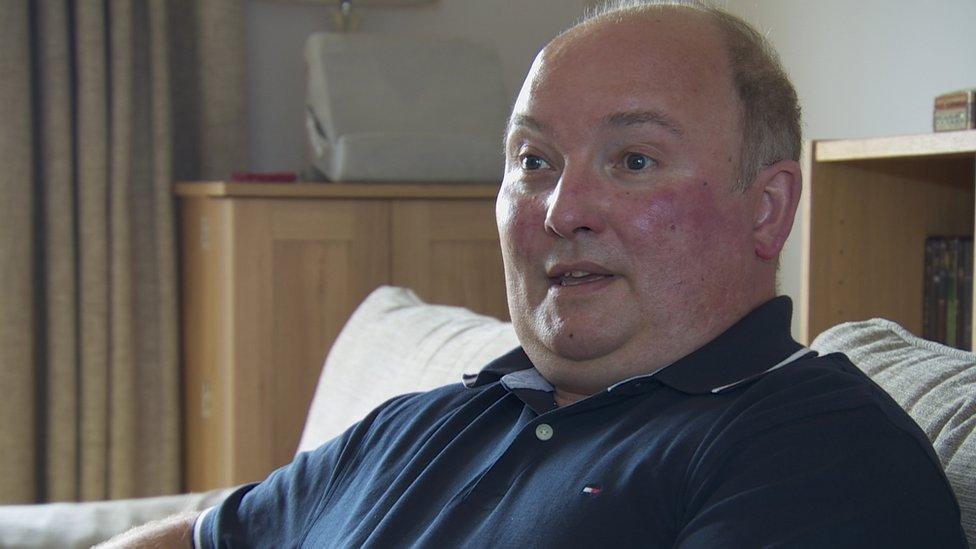
John Clarke says he had no option but to pay for a scan privately
Director of the Royal College of Surgeons Niall McGonigle said the solution required all shoulders to the wheel, a budget and political stability, which was a friend to the NHS.
Public inquiries dominated local news from Muckamore to urology, neurology and hyponatraemia - Northern Ireland has an unhealthy share of major investigations into aspects of its health and social care system.
And this year another inquiry joined the list - the Covid public inquiry which will sit in Belfast next April.
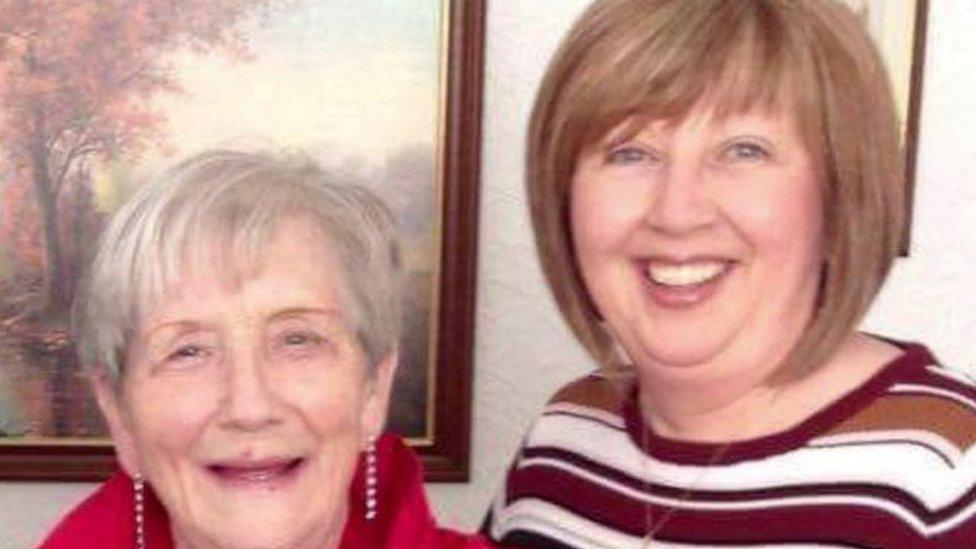
Brenda Doherty's mother Ruth (left) was the fourth person in Northern Ireland to die after having contracted coronavirus
Brenda Doherty's mum Ruth was the first person to die after testing positive for the virus in Northern Ireland.
Ms Doherty has been at the forefront of the local campaign for truth.
She said she has "no faith" in the current health system.
"There needs to be more breadth and I think there needs to be more reference to Northern Ireland," she told BBC News NI.
"Our trusts are completely different, they're a lot more complex so therefore, we need people who know Northern Ireland and its systems."
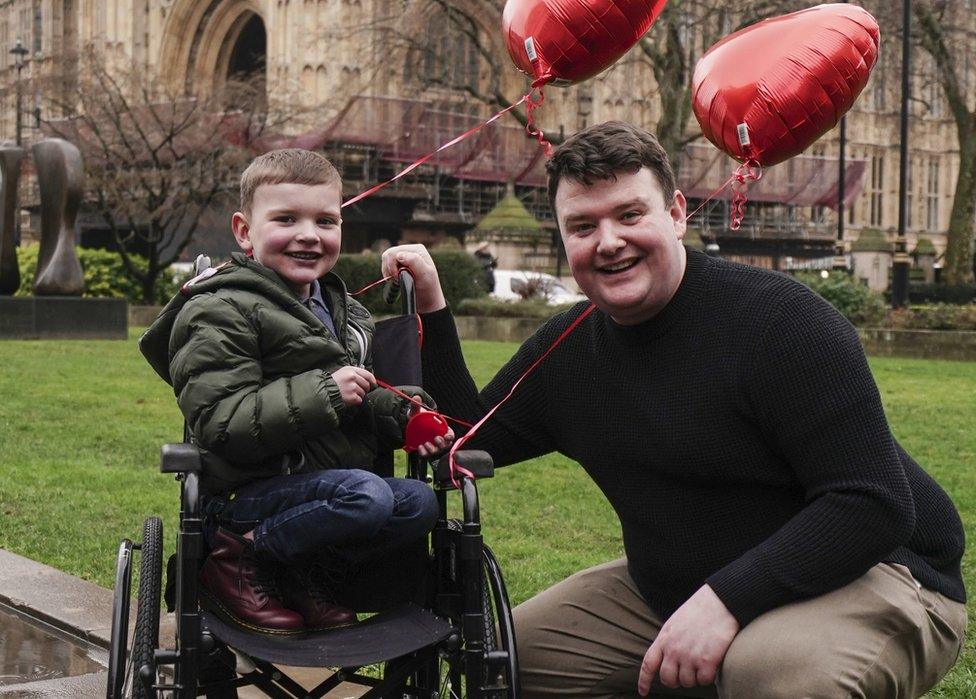
Dáithí and his father Máirtín took heart-shaped balloons to Westminster
It wasn't all doom and gloom as a significant moment this year was when Dáithí's Law came into effect.
It means most adults in Northern Ireland are now considered potential organ donors.
The legislation is named after six-year-old Dáithí Mac Gabhann who needs a heart transplant.
What's in store for 2024?
The year draws to a close with many unanswered questions, including the outcome of a major review into cervical smears in the Southern Trust.
Women told us the entire process, including the review of over 17,000 cases, has been "unsatisfactory".
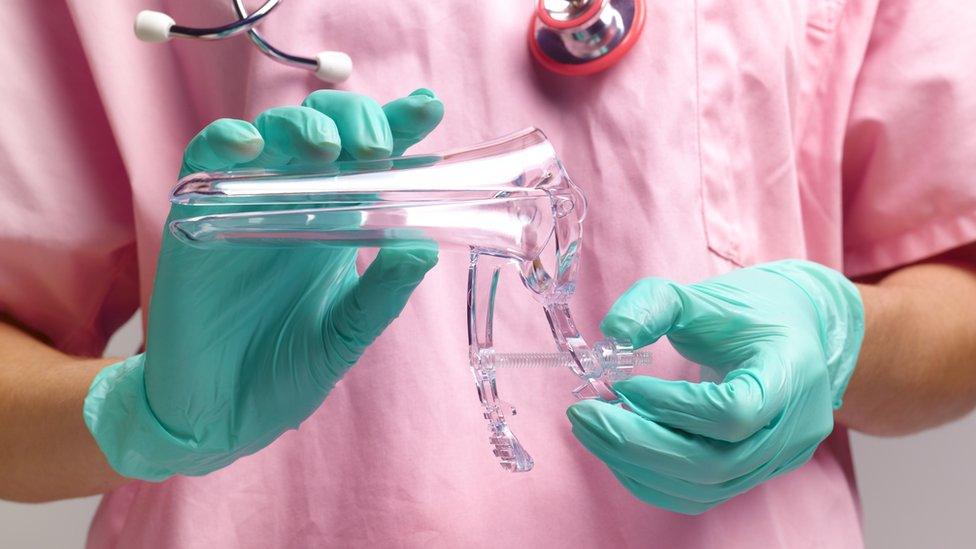
Smear tests check the health of the cervix
Focus will remain on the crisis within general practice.
In May, the British Medical Association (BMA) warned that up to 50 surgeries are at risk of closure with an increasing number handing back contracts.
Nurses will be among all healthcare workers calling for pay parity with their counterparts in the UK. That's how the year opened and, at the time of writing, would appear how it will close.
Perhaps the new year will bring some good news.
Related topics
- Published7 November 2023

- Published1 August 2023
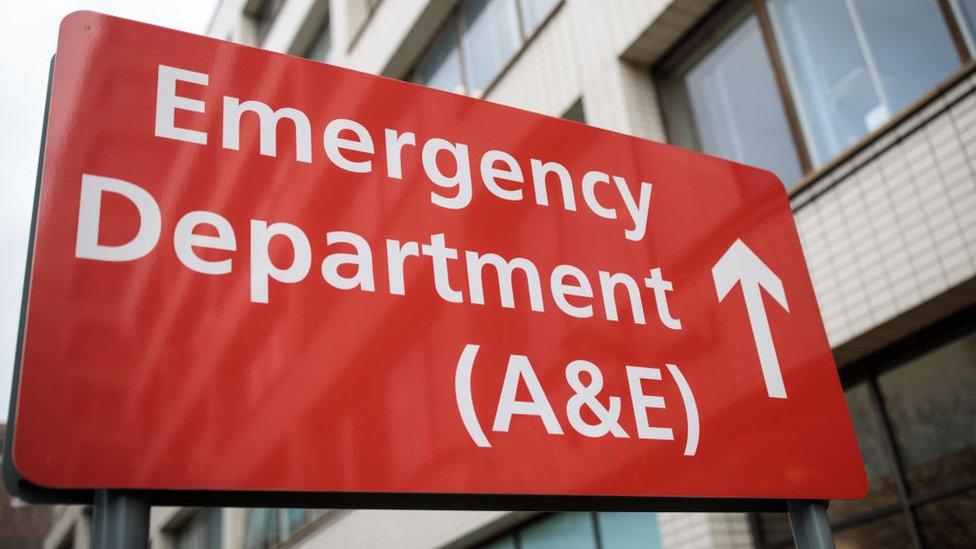
- Published28 September 2023
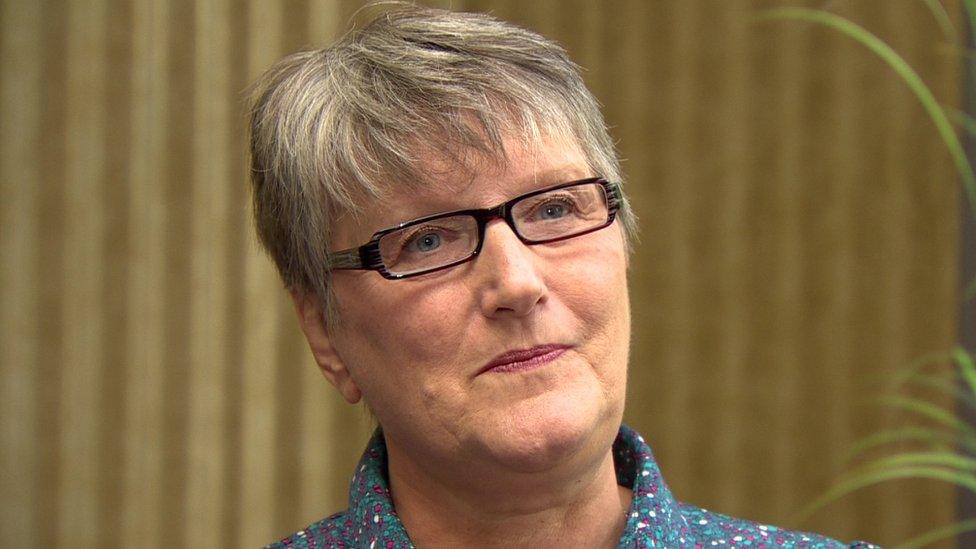
- Published10 October 2023
